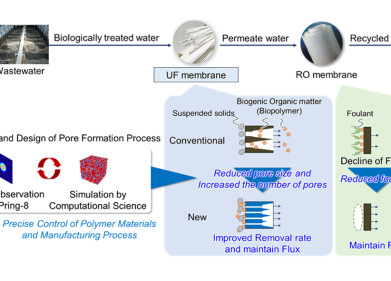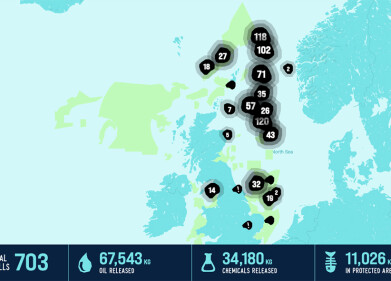Water/Wastewater
Almost one-in-three people globally will still be mainly using polluting cooking fuels– in 2030
Oct 05 2021
Almost one-in-three people around the world will still be mainly using polluting cooking fuels and technologies– a major source of disease and environmental destruction and devastation – in 2030, new research warned.
This rises to more than four-in-five in Sub-Saharan Africa, where the number of people mainly using polluting fuels is growing at an alarming rate.
A new study, carried out by UK researchers and the World Health Organization (WHO), has estimated that just under 3 billion people worldwide – including more than one billion in Sub-Saharan Africa - will still mainly be using polluting fuels such as wood fuels and charcoal at the end of the decade. These ‘dirty’ fuels are a source of major health risks as they produce high levels of household air pollution – chronic exposure to which increases the risk of heart disease, pneumonia, lung cancer and strokes, amongst others.
While the overall percentage of the global population mainly using polluting cooking fuels has been steadily decreasing since 1990, this trend is already showing signs of stagnation. Six in in ten people in rural areas are still reliant on biomass fuels such as wood and charcoal.
Reports by the WHO and others have attributed household air pollution from these fuels to millions of deaths per year – comparable to the death toll from outdoor air pollution. At the same time, fuel collection is often tasked to women and children, reducing opportunities for education, or income generation.
Polluting fuels are also an important cause of environmental degradation and climate change, with the black carbon from residential biomass cooking estimate to account for 25% of anthropogenic global black carbon emissions each year.
The researchers insist the pivotal new study shows that, although progress has been made, the quest to deliver universal access to clean cooking by 2030 is “far off track”.
They believe that global leaders and policy makers need to make significant advancements, in the short-term future, to help combat the health and environmental risks of household air pollution.
The study is published in Nature Communications on the 4th of October 2021.
The lead author of the study, Dr Oliver Stoner, who carried out the research at the University of Exeter but is now at the University of Glasgow said: “Analysing global trends suggests incremental progress in the direction of clean cooking fuels, but the simple reality is that there can be no global success while the number of people using polluting fuels in Sub-Saharan Africa grows by 10s of millions every year.”
Heather Adair-Rohani, Technical Lead on Health and Energy in the Department of Environment, Climate Change and Health at the WHO headquarters in Geneva, and a senior author on the study, stressed the importance of tackling the root causes household air pollution, “Accelerating access to clean cooking solutions must be a developmental priority. Ensuring the sustained adoption of clean cooking solutions can prevent disease and improve the livelihoods of the poorest populations as well as protect our climate.”
The crucial need to provide access to clean cooking globally was enshrined in the 2030 Agenda for Sustainable Development, adopted by all United Nations member states, as one of three targets for Sustainable Development Goal (SDG) 7, to “ensure access to affordable, reliable, sustainable and modern energy”.
As part of its mandate to monitor and inform policy towards this goal, WHO publishes estimates of exposure to HAP and related disease burdens, which have traditionally examined use of polluting fuels as a group, without distinguishing between the different fuels used.
For the new study, the researchers used sophisticated modelling combined with increasingly detailed household survey data to give a more accurate portrayal of the extent polluting cooking fuels are still used.
The research provides comprehensive and reliable estimates for the use of six types of fuel – electricity, gaseous fuels, kerosene, biomass, charcoal, coal – as well as overall clean and polluting fuel use from 1990 to 2020, and subsequent predictions up until 2030.
Together with the article, all estimates are published open access, to enable a new wave of research and policy aimed at tackling household air pollution.Among the research findings are:
• The absolute number of people using polluting fuels has deviated little from 3 billion over the last 3 decades.
• Projections show that 2.7 billion people – just under 1 in 3 – will continue to mainly rely on polluting cooking fuels in 2030.
• Sub-Saharan Africa is now the largest regional population mainly using polluting fuels for cooking, expected to rise above 1 billion people in the next 5 years under a business-as-usual scenario.
• Charcoal has become the most popular fuel in urban Sub-Saharan Africa.
Dr Stoner added: “While our analysis already paints a bleak picture, we don’t yet know the full extent to which the COVID-19 pandemic has threatened or even undone recent progress.”
Events
Mar 18 2025 Expo Santa Fe, Mexico
Mar 18 2025 Moscow, Russia
Mar 19 2025 Manila, Philippines
Mar 20 2025 Guangzhou, China
Mar 24 2025 National Harbour, MD, USA














